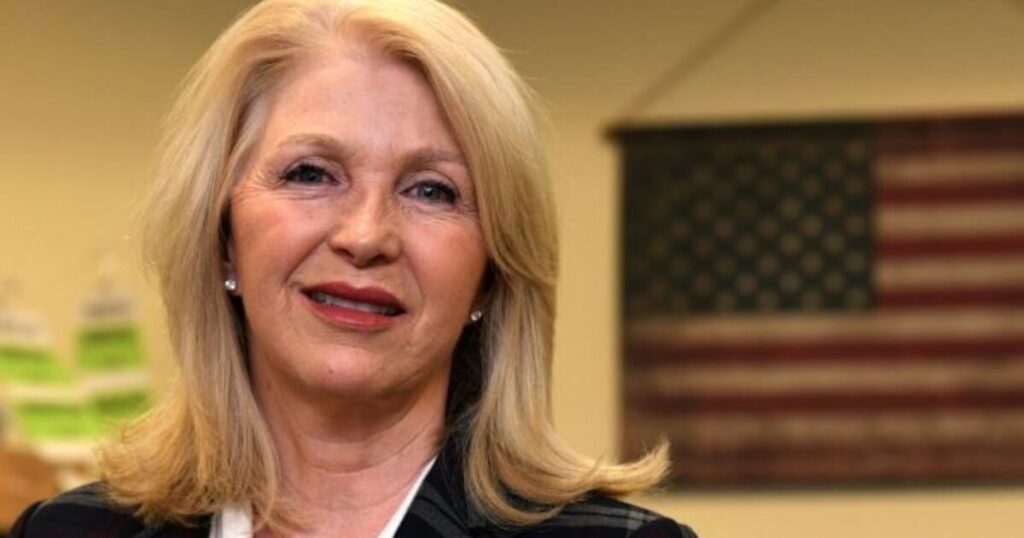In a concerning display of apparent injustice and bias within the legal system, Tina Peters, a figure widely known for her controversial views on election integrity, finds herself facing severe challenges while her counterpart, Colorado Secretary of State Jena Griswold, appears to evade accountability. Peters, currently incarcerated, recently sent a poignant message via a jail messaging app, expressing her determination to convey the truth about her situation, reassuring her supporters that she would never harm herself. This desperate call for transparency underscores the high stakes surrounding her plight and hints at the oppressive atmosphere surrounding her. As the judicial process plays out at an agonizingly slow pace, Peters remains behind bars, further fueling concerns about the perceived double standards in the administration of justice, particularly when compared to Griswold’s apparent impunity.
The recent decision by a three-judge panel to deny Peters a bond, thereby extending her time in jail while awaiting an appeal set for two to three years from now, illustrates the ongoing struggles she faces. Critics argue that this decision represents yet another instance of a two-tiered justice system that tolerates misconduct by certain officials while harshly penalizing others like Peters, who has adopted a vocal stance on election integrity issues. While Peters finds herself in a dire situation, a bombshell report unveiled by The Joe Hoft highlights a troubling development involving Secretary Griswold. This report suggests that Griswold appointed Sheila Reiner, a former employee of Dominion Voting Systems, as the overseer of Mesa County elections, raising serious questions about conflicts of interest given the stakes in the ongoing debates over election security and integrity.
Sheila Reiner’s appointment occurred amidst allegations that Griswold had prematurely deleted significant election records and posted sensitive passwords online, actions that have been largely overlooked by officials and the media. Unlike Peters, whose actions have garnered intense scrutiny and legal penalties, Griswold’s past missteps seem to elude serious investigation. In fact, when evidence surfaced indicating Griswold had illegally deleted over 29,000 election records, there was no immediate inquiry initiated into her actions. In a similar vein, although the Denver District Attorney’s office initially announced an investigation into Griswold concerning her sharing of passwords, the office later clarified that Griswold was not a target in their inquiries. The selective nature of these investigations has prompted further allegations of a system rigged to favor certain individuals, allowing those in power to sidestep accountability.
Moreover, the response—or lack thereof—from the state legislature regarding calls for an audit of Griswold’s election processes compounds the appearance of a double standard. Recent votes against auditing her actions raised eyebrows among those concerned about election integrity, further solidifying the perception that political favoritism plays a primary role in Colorado’s election oversight. This environment of apparent immunity for election officials stands in stark contrast to Peters, who has faced intense legal and societal pressures since stepping into the limelight. Her situation raises significant concerns about the ethics and operational transparency within Colorado’s electoral system, as she represents a segment of the public advocating for the integrity of elections.
The juxtaposition between Peters’ plight and Griswold’s position not only illustrates the disparities in how justice is applied but also reflects broader societal divisions regarding election integrity. Peters has positioned herself as a whistleblower, defiant in her insistence on revealing what she deems to be systemic issues within the electoral framework. Her conviction that she’s being targeted for her beliefs about election fraud is underpinned by her notable actions and statements, drawing a line between her resistance and what she sees as the unlawful actions by Griswold and others. The media’s relatively muted response to Griswold’s controversial appointment further raises questions about accountability, bias, and the role of public opinion in judicial proceedings, illuminating the complexities inherent in modern electoral disputes.
As Peters continues to serve time awaiting her appeal, the implications of her case extend beyond her personal struggles; they resonate deeply within ongoing discussions about trust in the electoral process. The increasing intensity of her situation, coupled with the stark realities of selective prosecution, paints a troubling picture of governance and law enforcement in Colorado. Advocates for Peters assert that her case is emblematic of larger issues concerning freedom of speech and the right to voice dissent, particularly regarding issues as pivotal as elections that shape democratic governance. The striking contrast between her circumstances and those of Griswold serves as a catalyst for deeper inquiry into the integrity of systems designed to manage public trust in electoral processes.

